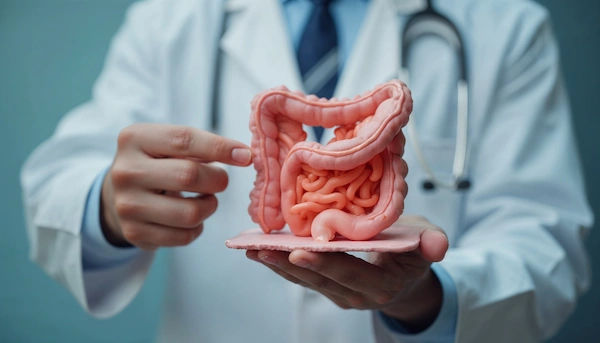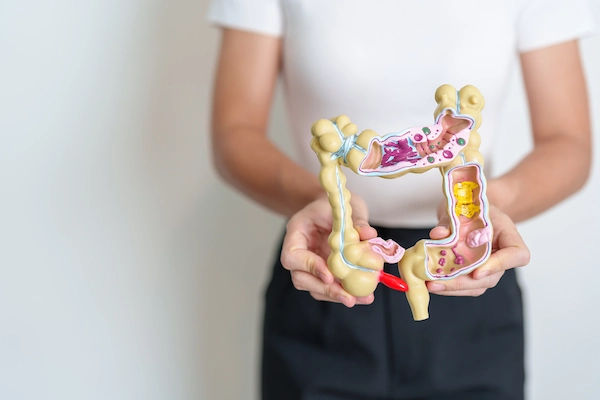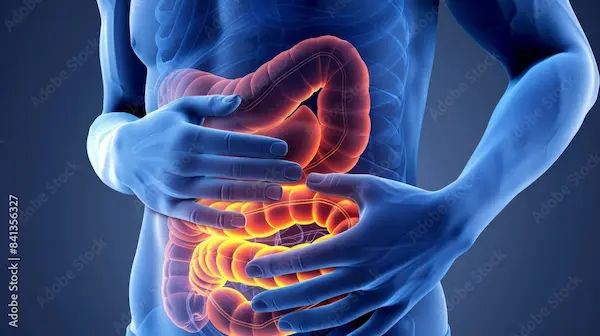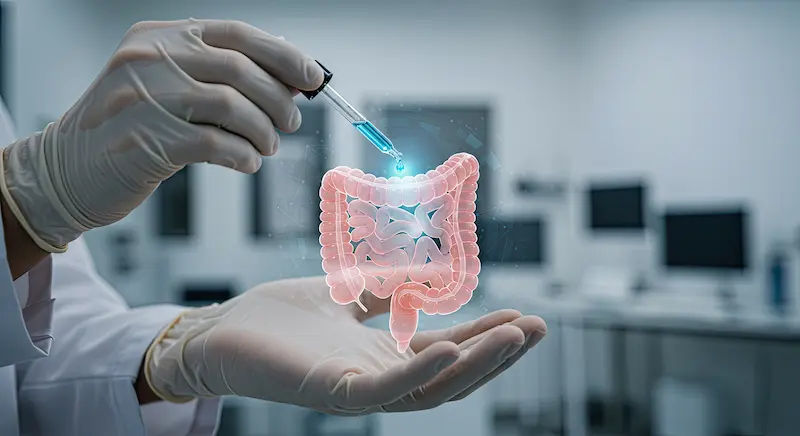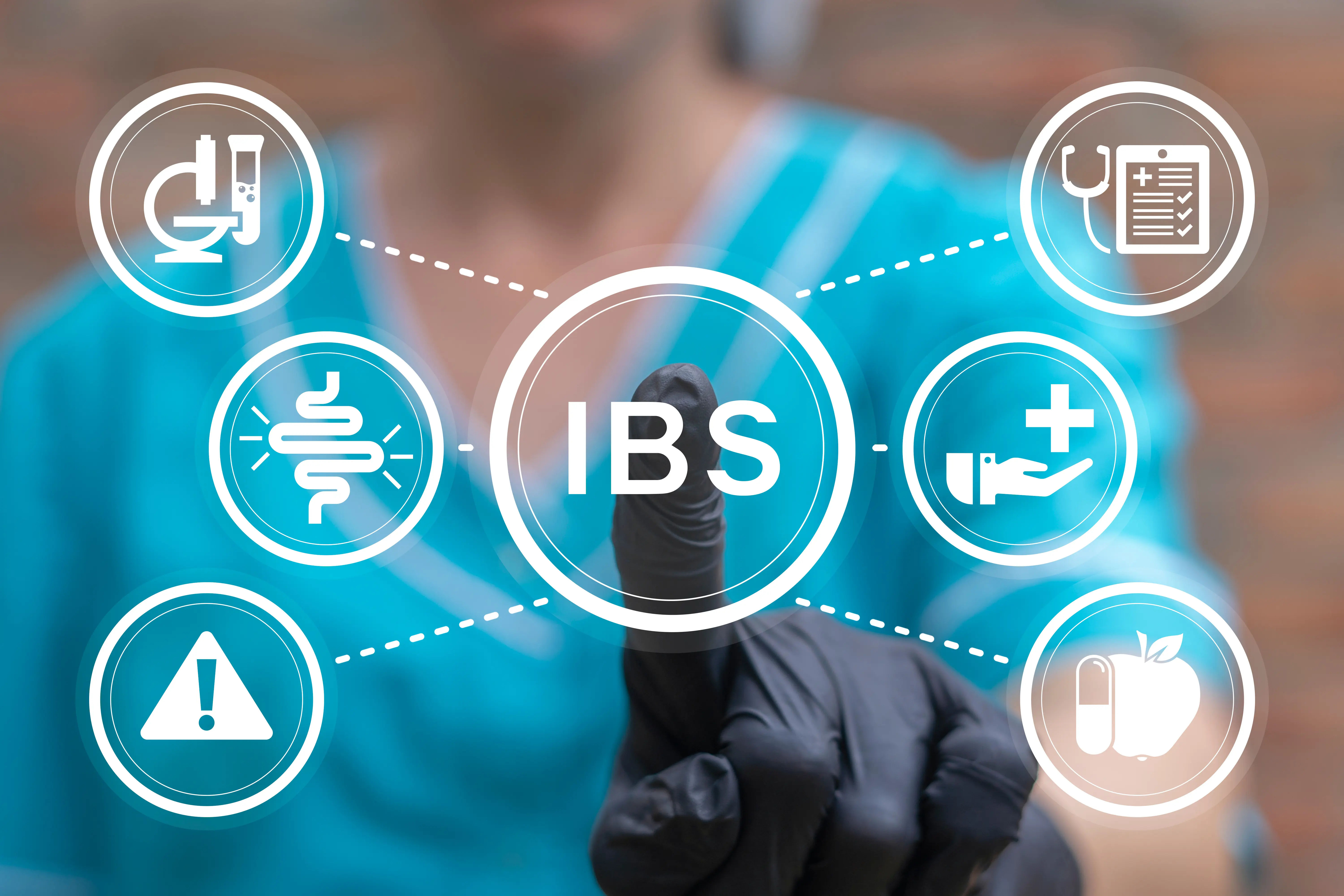Guide to Know About Irritable Bowel Syndrome
Learn all about Irritable Bowel Syndrome (IBS), including its symptoms, causes, triggers, and treatment options. Understand how to manage IBS effectively for better digestive health and improved quality of life.


Do you experience recurring stomach cramps, unpredictable bloating, or frustrating shifts between constipation and diarrhoea? If so, you might be among the millions worldwide navigating life with Irritable Bowel Syndrome, or IBS. More than just a "sensitive stomach," IBS is a common, chronic functional disorder of the gut-brain axis that can significantly impact your quality of life. But here's the crucial takeaway: you are not powerless. While there is no one-size-fits-all cure, IBS is highly manageable. This comprehensive guide will walk you through everything you need to know—from understanding the core symptoms and potential causes to exploring evidence-based strategies for symptom relief and reclaiming control of your digestive health. Let's demystify IBS together and find a path toward feeling better.
What Exactly is Irritable Bowel Syndrome (IBS)?
Irritable Bowel Syndrome is classified as a functional gastrointestinal (GI) disorder. This means the issue lies with how the gut and brain work together—a glitch in the communication system—rather than a detectable disease process like inflammation or damage visible on standard tests. Think of it like a software problem in a computer rather than a broken hardware component. The gut may be overly sensitive to stimuli (a phenomenon called visceral hypersensitivity), and the muscles in the bowel may contract too forcefully or too slowly, leading to the hallmark symptoms of pain, gas, and altered bowel habits. It's a real and often frustrating condition, but it does not cause permanent harm to the intestines or increase your risk of more serious diseases like colorectal cancer.
IBS vs. IBD: Understanding the Crucial Difference
A common point of confusion is the difference between IBS (Irritable Bowel Syndrome) and IBD (Inflammatory Bowel Disease). While the acronyms are similar, they represent very different conditions.
- IBS is a functional disorder with no visible signs of disease or inflammation.
- IBD, which includes Crohn's disease and ulcerative colitis, is an autoimmune condition characterised by chronic inflammation and structural damage to the digestive tract, which can be seen during procedures like a colonoscopy.
- Mistaking one for the other can be dangerous, which is why a proper medical diagnosis for IBS is essential to rule out IBD and other conditions.
Recognising the Symptoms of IBS
The symptoms of IBS can vary widely from person to person and even fluctuate from day to day. They often worsen after eating and may come in waves, with periods of flare-ups followed by periods of remission.
Common IBS Symptoms
The most prevalent signs include:
- Abdominal pain or cramping: Often relieved by having a bowel movement.
- Bloating and excess gas: A feeling of fullness or tightness in the abdomen.
- Altered bowel habits: This is the core of IBS and defines its subtypes:
- IBS-D (Diarrhoea-predominant): Frequent, loose, or watery stools.
- IBS-C (Constipation-predominant): Infrequent, hard, or lumpy stools that are difficult to pass.
- IBS-M (Mixed): Alternating between episodes of diarrhoea and constipation.
- Changes in stool appearance: Mucus in the stool is also a common report.
When to See a Doctor About Your Symptoms?
It's important to consult a healthcare professional for persistent changes in your bowel habits or if you experience "red flag" symptoms that are not typical of IBS alone, such as:
Unexplained weight loss
- Rectal bleeding or bloody stools
- Persistent pain that isn't relieved by passing gas or a bowel movement
- Symptoms that begin after age 50
- Family history of IBD or colon cancer
If your IBS symptoms persist beyond two weeks or you experience any of these red flags, consult a doctor online with Apollo24|7 for further evaluation and to rule out other potential causes.
What Causes IBS?
The exact cause of IBS remains unknown, but research points to a combination of factors that likely play a role.
The Gut-Brain Axis: A Two-Way Street
A central theory in understanding IBS involves the gut-brain axis—the complex, bidirectional communication network linking your central nervous system (brain and spinal cord) to your enteric nervous system (the "brain" in your gut). In IBS, this communication is disrupted. Signals may get crossed, causing the brain to perceive normal digestive sensations as painful (visceral hypersensitivity). This is also why stress and anxiety can trigger gut symptoms and, conversely, why a painful gut flare-up can negatively affect your mood.
Potential Triggers and Risk Factors
- Post-Infectious IBS: A bout of gastroenteritis ("stomach flu") caused by bacteria or a virus can trigger the onset of IBS in some people.
- Gut Microbiome: An imbalance in the types and numbers of bacteria in your intestines (dysbiosis) may contribute to symptoms.
- Food Intolerances: Many people with IBS find that certain foods (like dairy, gluten, or specific carbohydrates) worsen their symptoms.
- Genetics: Having a family member with IBS may slightly increase your risk.
- Stress: Chronic high stress levels can exacerbate symptoms significantly.
Consult Top Specialists
How is IBS Diagnosed?
There is no single definitive test for IBS. Diagnosis is typically a process of elimination based on your symptom pattern and by ruling out other conditions.
The Rome IV Criteria
Doctors often use the Rome IV criteria, a set of symptom-based guidelines. To meet the criteria, you must have experienced recurrent abdominal pain at least one day per week in the last three months, associated with two or more of the following:
1. Related to defecation.
2. Associated with a change in the frequency of stool.
3. Associated with a change in the form (appearance) of stool.
Ruling Out Other Conditions: Tests You Might Need
To ensure your symptoms aren't caused by something else, your doctor might recommend tests like blood tests (to check for celiac disease or anemia), stool tests (to look for infection or inflammation), or procedures like a colonoscopy. Apollo24|7 offers convenient home collection for tests like CRP (C-reactive protein) or calprotectin stool tests, which can help assess inflammation levels.
Effective Management and Treatment Strategies for IBS
Managing IBS is often about finding the right combination of strategies that work for your unique body. Treatment focuses on relieving symptoms.
Dietary Changes: The Low FODMAP Approach
One of the most effective evidence-based dietary strategies is the Low FODMAP diet. FODMAPs (Fermentable Oligosaccharides, Disaccharides, Monosaccharides, and Polyols) are types of short-chain carbohydrates that are poorly absorbed in the small intestine and can ferment, drawing water into the bowel and producing gas. This diet is not meant to be permanent; it involves a strict elimination phase followed by a careful reintroduction phase to identify your specific triggers, ideally with guidance from a registered dietitian.
The Role of Fibre and Hydration
Fibre: For IBS-C, increasing soluble fibre (found in oats, psyllium husk, and apples) can help soften stool and make it easier to pass. It's important to increase fibre intake gradually to avoid worsening gas and bloating.
Hydration: Drinking plenty of water is crucial, especially when increasing fibre, to help it work effectively and prevent constipation.
Stress Management Techniques for Gut Health
Given the gut-brain connection, managing stress is not optional—it's a core part of treatment. Techniques like cognitive-behavioural therapy (CBT), mindfulness meditation, regular gentle exercise (like yoga or walking), and ensuring adequate sleep can profoundly impact the frequency and severity of IBS flare-ups.
Medications for Symptom Relief
Depending on your subtype, a doctor may recommend:
- Antispasmodics: To reduce abdominal cramping.
- Laxatives: For IBS-C (used cautiously).
- Anti-diarrhoeal medications: Like loperamide for IBS-D.
- Low-dose antidepressants: These can help modulate pain signals in the gut-brain axis.
- Newer prescription drugs: Designed specifically for IBS-C or IBS-D.
- Living Well with IBS: Long-Term Strategies
- Accepting that IBS is a part of your life is the first step toward managing it effectively. It’s about building a toolkit of strategies.
Building a Support System
Talking to friends, family, or a therapist who understands can alleviate the emotional burden. Online communities and support groups can also provide valuable tips and reassurance that you are not alone.
Tracking Your Symptoms and Triggers
Keeping a detailed diary of your food, stress levels, sleep, and symptoms can help you identify your personal triggers and patterns, empowering you to make more informed choices.
Conclusion
Navigating life with Irritable Bowel Syndrome can feel like a challenging journey, but it's one filled with opportunities for empowerment and improved well-being. By understanding the nature of IBS as a disorder of the gut-brain connection, you can move beyond frustration and toward actionable strategies. Remember, management is multifaceted: identifying your unique food triggers through methods like the Low FODMAP diet, prioritising stress management as a non-negotiable part of your routine, and potentially exploring targeted medications can together create a powerful toolkit for symptom relief. If your condition does not improve after trying these methods, or if you need guidance tailoring them to your needs, book a physical visit to a doctor with Apollo24|7. Take heart—with patience, persistence, and the right support, you can significantly reduce the impact of IBS and live a full, vibrant life.
Consult Top Specialists
Consult Top Specialists

Dr Bhargav Vuppumalla
General Physician/ Internal Medicine Specialist
5 Years • MBBS MD GENERAL MEDICINE
Bengaluru
Apollo Medical Center, Marathahalli, Bengaluru

Dr Harish K C
Gastroenterology/gi Medicine Specialist
15 Years • MBBS MD DM MRCP(UK) (SCE-Gastroenterology and Hepatology)
Bengaluru
Apollo Hospitals Bannerghatta Road, Bengaluru

Dr Rohit Sureka
Gastroenterology/gi Medicine Specialist
15 Years • MBBS, DNB General Medicine, DNB Gastroenterology
Jaipur
Apollo 247 virtual - Rajasthan, Jaipur

Dr. Shivaraj Afzalpurkar
Gastroenterology/gi Medicine Specialist
13 Years • MBBS, MD General medicine (Gold medalist), DrNB (Gastroenterology), MNAMS
Bengaluru
Apollo Clinic, JP nagar, Bengaluru

Dr. Amit Pandita
Gastroenterology/gi Medicine Specialist
10 Years • MBBS. MD (INTERNAL MEDICINE) DrNB (GASTROENTEROLOGY AND HEPATOLOGY)
Delhi
Apollo Hospitals Indraprastha, Delhi
Consult Top Specialists

Dr Bhargav Vuppumalla
General Physician/ Internal Medicine Specialist
5 Years • MBBS MD GENERAL MEDICINE
Bengaluru
Apollo Medical Center, Marathahalli, Bengaluru

Dr Harish K C
Gastroenterology/gi Medicine Specialist
15 Years • MBBS MD DM MRCP(UK) (SCE-Gastroenterology and Hepatology)
Bengaluru
Apollo Hospitals Bannerghatta Road, Bengaluru

Dr Rohit Sureka
Gastroenterology/gi Medicine Specialist
15 Years • MBBS, DNB General Medicine, DNB Gastroenterology
Jaipur
Apollo 247 virtual - Rajasthan, Jaipur

Dr. Shivaraj Afzalpurkar
Gastroenterology/gi Medicine Specialist
13 Years • MBBS, MD General medicine (Gold medalist), DrNB (Gastroenterology), MNAMS
Bengaluru
Apollo Clinic, JP nagar, Bengaluru

Dr. Amit Pandita
Gastroenterology/gi Medicine Specialist
10 Years • MBBS. MD (INTERNAL MEDICINE) DrNB (GASTROENTEROLOGY AND HEPATOLOGY)
Delhi
Apollo Hospitals Indraprastha, Delhi
More articles from Irritable Bowel Syndrome
Frequently Asked Questions
What is the best diet for someone with IBS?
There is no single 'best diet,' as triggers are individual. However, the most scientifically supported approach is the Low FODMAP diet, which is an elimination diet designed to help you identify your specific food intolerances. It's best undertaken with guidance from a healthcare professional.
Can IBS cause fatigue and anxiety?
Absolutely. The constant discomfort and pain can be physically draining, leading to fatigue. Furthermore, the strong gut-brain connection means that gut issues can directly influence mood and anxiety levels, and vice-versa.
Are there any natural remedies for IBS pain relief?
Some people find relief with peppermint oil capsules, which have antispasmodic properties that can relax intestinal muscles. Probiotics may also help some individuals rebalance their gut microbiome, though results vary. Always talk to your doctor before starting any new supplement.
How is IBS diagnosed without a specific test?
Doctors use the Rome IV criteria, a set of symptom-based guidelines, and perform tests primarily to rule out other conditions with similar symptoms, such as celiac disease, inflammatory bowel disease (IBD), or colon cancer. This process of elimination leads to a positive diagnosis of IBS.
Is IBS more common in women?
Yes, IBS symptoms in women are reported nearly twice as often as in men. Hormonal fluctuations are believed to play a role, as many women report that their symptoms worsen around their menstrual periods.
